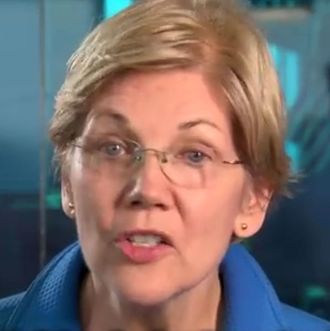
Last week, the Democratic Party’s platform committee declined to call for the death of the Trans-Pacific Partnership. On one level, this decision was not surprising: The sitting Democratic president has named the trade agreement one of his administration’s top second-term priorities.
But from another vantage point, the position looks a bit curious: A majority of elected Democrats in both the House and Senate voted against advancing the trade agreement last year. And a majority of appointees to the platform committee are officially opposed to the deal. As are both 2016 major-party nominees. That’s a pretty broad base of opposition to what is almost certainly the most consequential legislation that has a chance of passing within the next 12 months.
Contrary to the way debate over the agreement is often framed, the TPP is about a lot more than “free trade.” The United States already has trade agreements with 6 of the 11 participants in the deal, and beyond the provisions that reduce tariffs on dairy products, Malaysian shark fins, and Vietnamese whale meat, the TPP contains a bevy of protectionist measures that insulate the American pharmaceutical and entertainment industries against competition, by strengthening international patent and copyright laws. In the case of the former, that means exporting America’s insanely high drug prices to parts of the world that can scarcely afford them, while making it even more difficult for American progressives to pass reforms that would significantly reduce domestic drug costs. Which isn’t to say that there are no positive arguments to be made on behalf of the agreement, in terms of promoting global growth or increasing the United States’ geopolitical influence. But the point is that the TPP isn’t some niche issue — it is a vast collection of controversial policies that will need to be accepted or rejected en masse.
Those who voted against committing the Democratic Party to an official position on the TPP justified their stance as a gesture of respect to the outgoing president. But some progressive Democrats worry that it may be, in fact, an act of deference toward the incoming one.
As secretary of State, Hillary Clinton championed the TPP as “the gold standard in trade agreements.” Clinton revised that assessment over the course of the Democratic primary and is now officially opposed to the agreement “in its current form.” In his recent jeremiad against rotten trade deals, Donald Trump deftly articulated left-Democrats’ anxieties about Clinton’s phrasing:
Here’s how it would go: she would make a small token change, declare the pact fixed, and ram it through. That’s why Hillary is now only saying she has problems with the TPP “in its current form” – ensuring that she can rush to embrace it again at her earliest opportunity.
In a five-minute video produced by the liberal activist group CREDO, Warren delivers a thorough denunciation of the agreement, giving special attention to its clause on investor-state dispute settlement — a legal system that allows corporations to challenge any government regulation that disadvantages their business interests before an arbitration panel whose rulings cannot be appealed. If a corporation wins such a settlement, the offending government is forced to either rewrite its regulations or pay fines to compensate the company for its lost profits. Currently, TransCanada is using the ISDS provision in NAFTA to demand $15 billion from the United States in compensation for the Obama administration’s decision to veto the Keystone XL Pipeline.
As Warren notes, the authors of the TPP implicitly acknowledged the threat that ISDS poses to public-health regulations by barring tobacco companies from accessing the process. (If ISDS posed no risk to reasonable public-health regulations, there would be no need to deny tobacco companies the right to challenge smoking laws before an arbitration panel.)
Among the many things CREDO’s video explainer makes clear: Hillary Clinton can pick Warren for VP, or she can re-embrace the TPP — but she can’t do both.
If Clinton does pick Warren, it will be exceedingly difficult to pass the agreement, even during Congress’s lame-duck session. The Obama administration gained fast-track authority on the strength of Republican support. That support will likely dissolve if president-elect Trump is preparing to take office. Conversely, if the incoming Democratic vice-president is one of the nation’s leading opponents of the TPP, it’s hard to imagine that many congressional Democrats will feel comfortable changing sides.
Notably, the veepstakes’ other front-runner, Virginia senator Tim Kaine, was one of the 13 Senate Democrats to vote for fast-track last year.






























